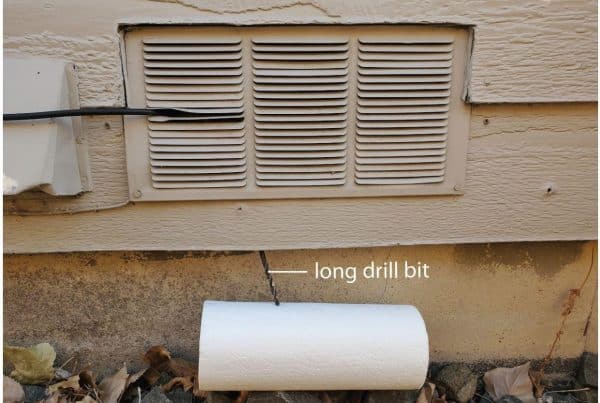For many reasons, tax season may be a huge source of financial stress, particularly having to pay the IRS whatever you owe them. But there is money in this for you as well, and all you really need is a little research, financial prowess, and perhaps a good tax calculator.
Overlooked tax deductions that you shouldn’t miss:
Sure, you may be aware of the significant tax deductions you are entitled to and claim each year, but there may be others you need to be aware of. Claiming as many credits as possible equals more money in your pocket, and you may be missing out if you need to know what to look for. This article on tax deductions can help you keep track of credits you may be eligible for, mainly if you handle your taxes. Here are some frequently overlooked tax deductions and credits for this tax season.
Medical:
For individuals who qualify, many medical expenses may be tax deductible. In the medical expense deduction, you can claim itemized deductions. It means your deductions for things like home mortgage interest and property taxes are more than the standard deduction; then, you can claim medical expenses greater than 7.5 percent of your total AGI. If you wish to deduct all of your medical expenses, keep your receipts for the following:
-
- Healthcare premiums. Medical insurance premiums are tax deductible for self-employed people, even if they cannot claim itemized deductions.
- Personal protective equipment (PPE)
- Transportation expenditures for doctor’s visits and trips to medical facilities or doctors’ offices are eligible for 22 cents per mile.
- Nursing home medical costs
- Acupuncture and chiropractic care
- Hearing aids, glasses, contacts, and laser surgery
- Wheelchairs and crutches for disabled people.
- Alcohol and drug addiction treatment and smoking cessation programs
- Nurses’ costs
- Doctor-prescribed weight-loss programs
Note: Apart from this, don’t forget to add payroll expenses because it’s the best way to save money in the account of tax deductions. You only need to keep track of everything using paystub documents.
Moving expenses:
Taxpayers have lost the ability to deduct moving expenses; one major group can still claim their moving expenses from the IRS. Who exactly are they? Service members in the military. You can still deduct these costs if you are an active-duty military member relocating. Furthermore, if the move is permanent and was ordered by the military, you are not required to pay tax on moving expense reimbursements. So, start gathering those receipts right away because you can deduct the costs of your family’s travel and lodging and the costs of moving household goods and shipping your cars and pets.
Earned Income Tax Credit (EITC):
Every year, millions of low-income people claim this benefit. According to the IRS, 25% of taxpayers eligible for the Earned Income Tax Credit do not claim it. Some people are denied credit because the regulations are complicated. Others are simply unaware that they qualify. The EITC is a refundable tax credit, not a deduction, with maximum amounts ranging from $560 to $6,935 for different filing statuses. The credit is intended to boost pay for workers with low-to-moderate income. However, the credit is wider than for low-income individuals. Tens of millions of previously middle-class individuals and families, including many white-collar workers, are now categorized as low-income because they:
- Lost a job
- Reduced pay
- Or worked fewer hours during the year
Your income, marital status, and family size determine your refund amount; to receive an EITC refund, you must file a tax, even if you do not owe any taxes. Furthermore, if you were eligible to claim the credit in the past but did not, you can file for an EITC refund for up to three previous tax years at any time during the year.
State sales taxes:
This deduction is most useful for people who live in states that do not have an income tax. Here’s why it matters. You must select either state and local INCOME taxes or state and local SALES taxes to deduct. The state & local income tax deduction is a better deal for most residents of income-taxing states. There are mainly two ways to claim the sales tax deduction on your tax return if you live in an income-tax-free state. To begin, you can utilize the IRS tables for your state to determine how much you can deduct.
Furthermore, if you bought a car, boat, plane, or house or made significant home improvements, you can add the state sales tax you have paid. Moreover, you can include them in the amount shown in the IRS up to the limit permitted in your state. Alternatively, you can keep track of all sales tax paid throughout the year and use that. The IRS’s Sales Tax Calculator is the best way to see what you can deduct. Remember that your total itemized deductions for all state and local taxes are restricted to $10,000 per year.
Charitable:
If you claim the standard deduction, you can now deduct up to $300 for monetary gifts under the American Rescue Plan. If you’re married and filing jointly, the tax is $600. Some examples of yearly contributions include:
- Clothing or other donated items. Simply mark the receipt with the estimated value. The Goodwill Valuation Guide is an excellent resource.
- Travel expenses incurred when participating in philanthropic activities. If you volunteer for a 501(c)(3) organization, you can claim 14 cents per mile.
- Volunteer expenses. When volunteering takes you away from home, you can deduct the expense of food, lodging, public transportation, and parking if you pay for them yourself.
Gambling Losses:
The gambling loss deduction is limited to the amount of WINNINGS or quirky gifts you report as taxable income from gambling. However, save your gambling receipts (even lost tickets) if you intend to claim this tax break. The IRS also recommends keeping a daily gambling diary containing the date and kind of wagering, the name and location of gambling establishments, the terms of anyone accompanying you when you gamble, and the sums you won or lost.
Conclusion:
People frequently ignore excellent tax-saving options because they are unaware of them. Alternatively, because tax laws change, keeping up with the most recent deductions, credits, and exemptions can be difficult. If you qualify for any of these tax benefits, you should be able to lower your tax payment this year.








